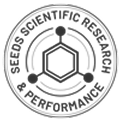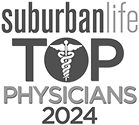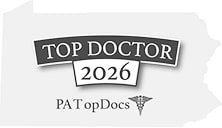Shoulder Pain Treatment
Shoulder pain often stems from tendon injuries, instability, or inflammation that limits your range of motion and strength. At Meeting Point Health, we use targeted regenerative therapies such as PRP, Prolotherapy, and Stem Cell Therapy to repair soft tissue, restore joint stability, and reduce inflammation. Our personalized approach helps you move freely, rebuild strength, and return to the activities you love—without surgery.
What Are Common Shoulder Injuries?
- Rotator Cuff Tear
- Shoulder Fracture
- Frozen Shoulder
- Shoulder Arthritis
- Shoulder Bursitis
- Shoulder Dislocation
- Shoulder Instability
- Nerve Impingement
- Tendinopathy
- Labral Tears
- Shoulder Separation
- AC Joint Injuries
- Adhesive Capsulitis
- Swimmers Shoulder
- Brachial Neuritis
- Calcific Tendinitis
- Sprains and Strains
- Thoracic Outlet Syndrome
- Overuse Syndrome
Common Symptoms of Shoulder Injuries & Conditions
- Sudden, sharp pain following an accident, fall, or sports activity
- Immediate swelling, bruising, or redness around the shoulder
- Limited range of motion or inability to lift the arm overhead
- A popping, tearing, or grinding sensation at the time of injury
- Weakness or loss of strength in the arm shortly after the incident
- Gradual onset of dull, aching pain that worsens over time
- Stiffness or a “frozen” feeling in the shoulder joint
- Pain that flares up at night or disrupts sleep
- Discomfort or weakness when performing routine activities (reaching, lifting, carrying)
- Chronic inflammation or tenderness without a specific injury event
- Pain that radiates down the arm, neck, or upper back
How To Diagnose a Shoulder Injury?
It’s important to get a diagnosis from a doctor who specializes in shoulder pain. At Meeting Point Health, Dr. Matta begins with each new patient with a thorough assessment, including a medical history review, physical exam, and ultrasound diagnostics. He evaluates symptoms, mobility limitations, and any previous injuries. The physical exam includes orthopedic, functional movement, and neurokinetic assessments. Using ultrasound, Dr. Matta examines the internal structures of the shoulder to recommend personalized treatment options for shoulder pain relief.
Treatment Options for Shoulder Pain
At Meeting Point Health, we take a comprehensive and personalized approach to treating shoulder pain, focusing on reducing pain, restoring function, and addressing the condition’s root cause. Our treatment plans combine advanced regenerative medicine techniques with holistic care to promote long-lasting healing. Contact Meeting Point Health today to schedule your personalized consultation and start your journey to relief. Your path to recovery begins here!
Prolotherapy
Prolotherapy therapy is a medical injection procedure whose goal is to relieve pain and promote healing of musculoskeletal conditions, especially involving ligaments, joints, and tendons Prolotherapy stimulates healing, causes inflammatory responses that increase blood flow and the arrival of immune cells and growth factors to the injection area, and tissue repair.
PRP Therapy
Platelet-rich plasma PRP therapy is a medical treatment that involves the use of a patient’s own blood to promote healing and tissue regeneration. Once injected, the growth factors and other bioactive substances in PRP work to accelerate tissue repair, reduce inflammation, and promote the formation of new blood vessels. This helps in reducing pain, improving function, and enhancing the overall healing process.
Stem Cell Therapy
Stem cell injection therapy refers to a medical procedure in which stem cells are harvested and then injected into a localized area on a patient’s body, typically to promote tissue repair, and regeneration, or to treat various medical conditions. Stem cells are unique because they can develop into different types of cells in the body, and they also have the capacity for self-renewal. This makes them valuable in medical treatments, as they can potentially replace or repair damaged or diseased tissues. Stem cell injection therapy can treat arthritic joints, sports injuries, tendinopathies, non-union fractures, meniscal tears, Degenerative Disc Disease, and Osteonecrosis or Avascular Necrosis.
Prolozone
Prolozone therapy is a mixture of ozone gas and a prolotherapy solution is injected into the affected area, often around joints, ligaments, or tendons. The theory is that this combination not only irritates and strengthens the tissues (like prolotherapy) but also delivers the potential therapeutic benefits of ozone, such as improved circulation and tissue oxygenation. Prolozone combines procaine, dextrose, B vitamins, saline, oxygen, and ozone into a damaged joint and the combination allows for regrowth of damaged tissue.
Nerve Hydrodissection
Nerve hydrodissection is a minimally invasive medical procedure involving injecting an anti-inflammatory solution around an entrapped nerve. Injectables such as dextrose, vitamins, peptides, plasma, procaine, and even stem cells are flooded around compressed or irritated nerves. This technique aims to separate the affected nerve from surrounding structures, such as muscles, fascia, or scar tissue, which may be contributing to the pain or dysfunction.
Peptide Therapy
Peptide Therapy can be introduced as an at-home treatment. Peptide therapy introduces peptides to signal communication with our cells to perform a specific response. Administrating peptides elicits a response to regulate or improve physiological functions. For regenerative medicine, peptides for wound recovery, and tissue repair, reduce inflammation, accelerate recovery time, and promote cell migration and differentiation.
How To Prevent Shoulder Injuries?
Simple daily habits can go a long way in protecting your shoulders, reducing strain, and keeping them strong and mobile for years to come.
- Maintain good posture when sitting at a desk, driving, or using devices
- Set up an ergonomic workstation to reduce shoulder and neck strain
- Use both straps when carrying backpacks or distribute heavy bags evenly
- Avoid sleeping positions that put pressure on your shoulder, such as lying directly on one side for too long
- Take frequent breaks to stretch if your work involves repetitive movements or long hours at a computer
- Stay active with low-impact exercises that strengthen your shoulders and upper back
- Pay attention to early signs of discomfort and rest before pain worsens
If shoulder pain continues despite these prevention strategies, Meeting Point Health can help uncover the root cause and guide your body’s natural healing with personalized, regenerative treatments.








